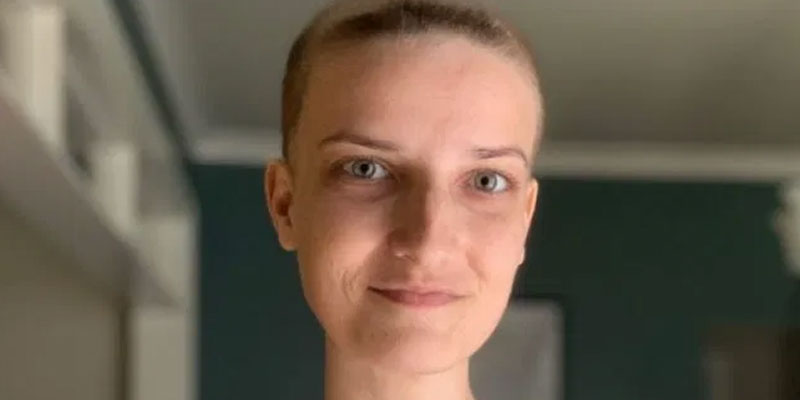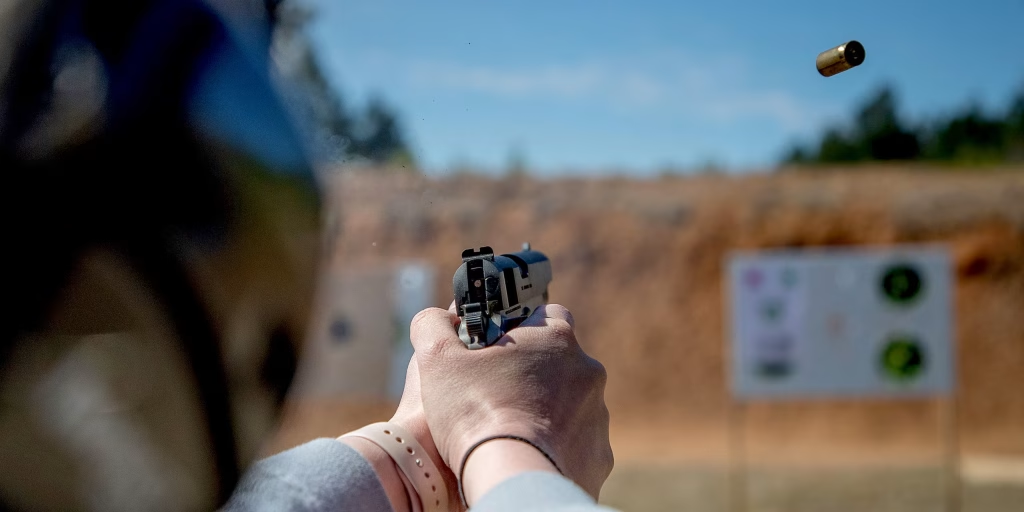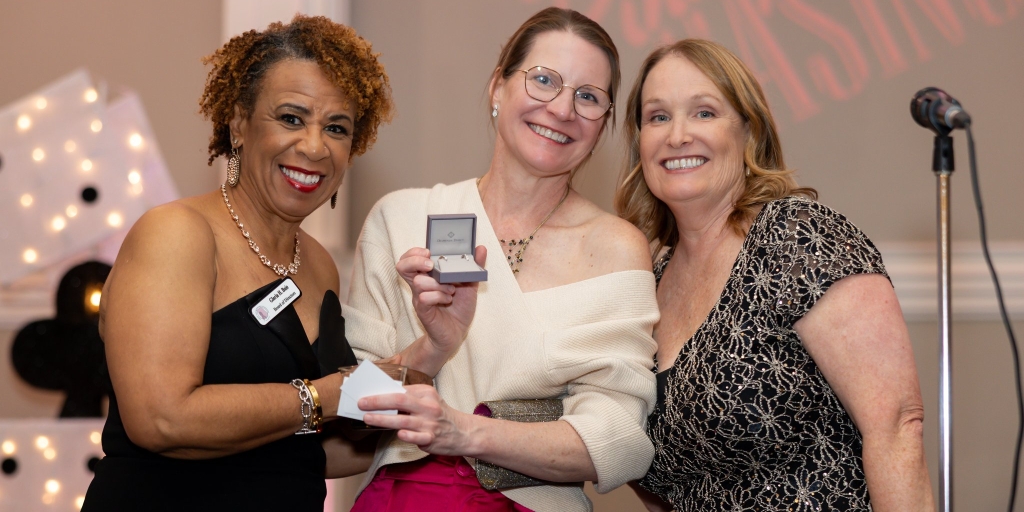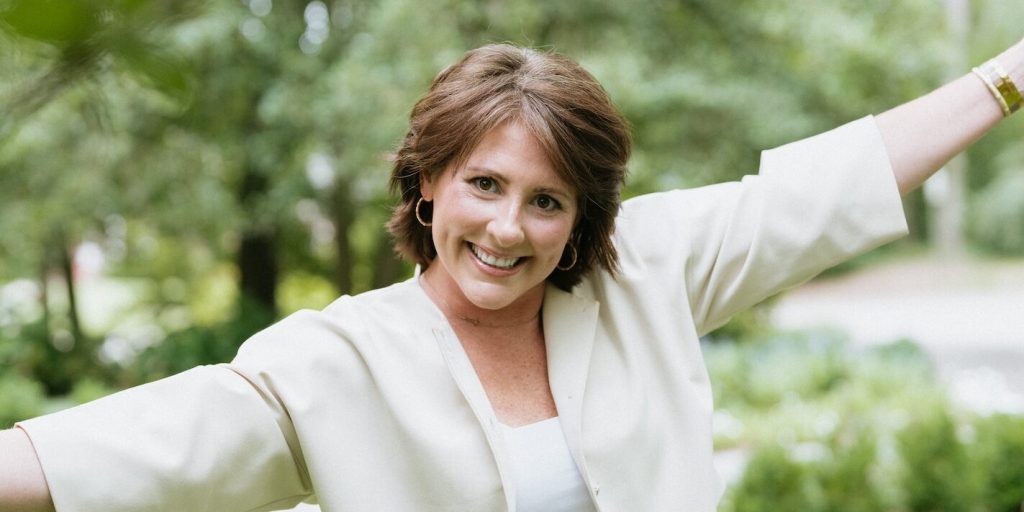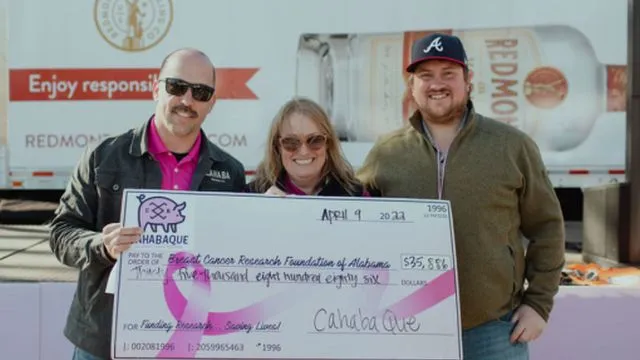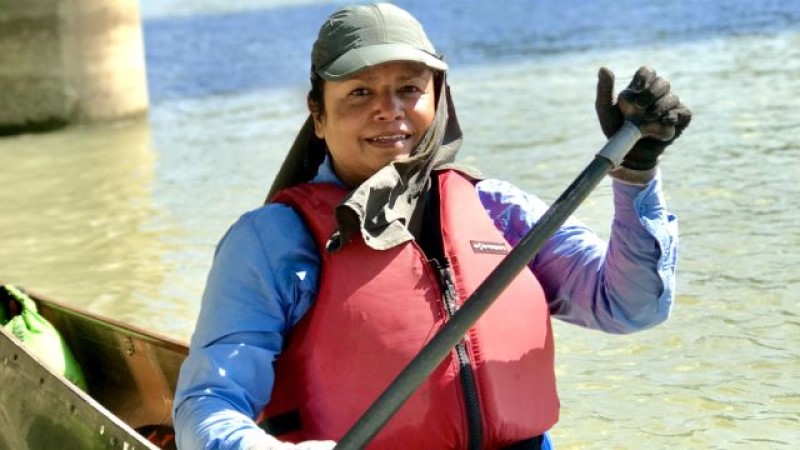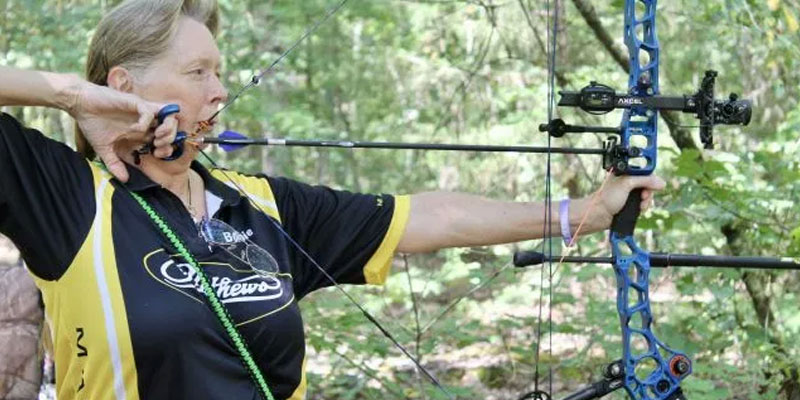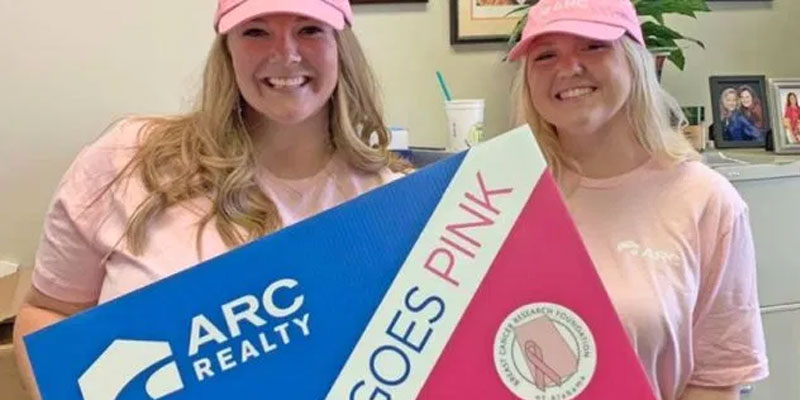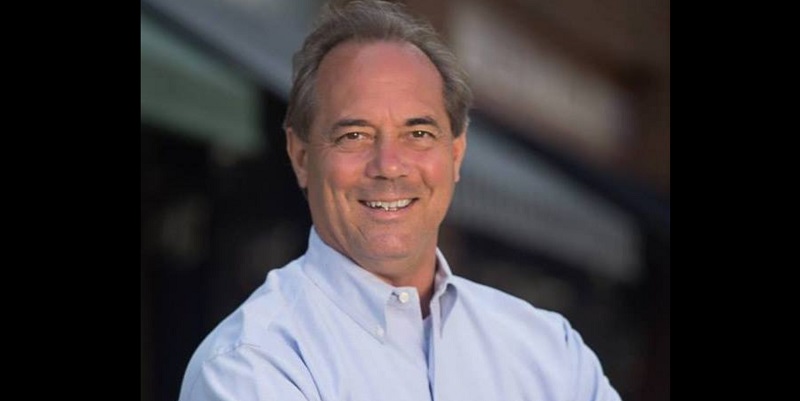Being diagnosed with breast cancer is the furthest thing from most young women’s minds.
In 2019, Audra Chiles’s life was turned upside down when she was diagnosed with stage 2 breast cancer. Chiles’s first inkling that anything was amiss was when she noticed a marble-size growth. Before that, the busy young career woman looked only toward the future.
“I was hit in the face with a very traumatic diagnosis,” said Chiles, who works in the web-based industry in Birmingham. “I felt like it was the end of my life. I was dealing with death. I had all this mental and emotional trauma I had to walk through.”
After coming through the ordeal, Chiles wants to give back by helping others – and she’s doing that by facilitating Zoom meetings for young breast cancer patients and survivors.
Forging the Young Breast Cancer Survivor group
In the middle of turmoil, Chiles found an advocate in Forge Breast Cancer Survivor Center. She credits Forge’s support with helping her recover and deal with difficult emotions. Chiles’ doctor told her about Forge, which provides resources, support and counseling to breast cancer patients and their families. The nonprofit receives most of its referrals from oncologists, surgeons and clinician offices in the Birmingham area, though it serves patients in the five counties around the city.
“I’d never had surgery and didn’t know what to expect,” said Chiles, who is 27. “I wanted a community who could guide me. Forge had peer mentors. The information they gave me was incredibly valuable and helpful.”
During treatment, Chiles took advantage of Forge’s counseling services. Chiles is among more than 220 patients served by Forge since 2016. The nonprofit has impacted more than 2,300 family members and friends of patients.
“We haven’t yet served any male patients, but we’re part of the support system for husbands, sons and other family members of primary clients,” said Claire Gray, Forge’s manager of Community Outreach.
Of Forge’s most recent 10 clients, four women were under 35, which led to its founding the Young Breast Cancer Support group in January. Group members received their primary diagnosis before age 45. Since many women have their first mammogram at 40, most people are more aware of women 50 and older receiving a breast cancer diagnosis, Gray said.
The group meets virtually at 6 p.m. on the second Thursday of each month.
“We have a number of clients who were first diagnosed in their 20s and 30s,” Gray said. “That’s a very different experience, so we are doing our best to help support and walk alongside them as they navigate a completely different journey.
“One reason we felt strongly about providing the Young Breast Cancer Survivor group as a resource is, because with COVID, you’re not seeing anyone right now,” she said. “Zoom and text makes it easy to get a group together who are going through a similar struggle and find that connection that we’re so desperately missing right now. We’ve seen younger women who have been diagnosed that are reaching out to us for support. We want women to know there’s help out there for any stage of their journey.”
The desire to ease someone else’s journey is why Chiles decided to become a patient advocate at Forge.
Under the tutelage of Forge’s caring staff, Chiles guides monthly Zoom meetings, which give attendees – about 10 women – a time to share their experiences. Attendees discuss their experiences and family issues, and seek advice.
Chiles endured mastectomy surgery and chemotherapy but doesn’t want other young women to feel alone undergoing similar treatments. She feels fortunate to have found the Forge community during her battle with cancer.
“I never thought I’d be a 26-year-old cancer survivor,” said Chiles, who has served as a Forge peer mentor since August 2020. “People like the opportunity to fellowship with others who have gone through the same thing. There are lots of opinions from people around you, but to actually get the perspective of someone in your shoes, who came out on the other side, allows for true empathy and understanding.
“To me, it was one of the darkest times in my life, so it helps to have other people to talk with,” Chiles said.
Providing counseling and advocacy
Forge helps with many factors that complicate a patient’s diagnosis.
“Patients are concerned for themselves, and they’re concerned for their family,” Gray said. “We talk with patients about how the diagnosis affects them.”
Forge partners with Oasis Counseling for Women and Children, located around the corner from Forge’s new headquarters at 1321 19th St. S. in Birmingham. Forge can refer clients who need mental health counseling for six free visits with a licensed counselor.
“Oasis can also counsel children who are having a hard time with the diagnosis or provide marital counseling,” said Lauren Roberts, executive director of Forge. “It’s not just for the breast cancer patient. It’s also for the family, because we focus not only on survivors, but also co-survivors who are the unsung heroes of victims of a cancer diagnosis. They can get overlooked a lot, so we also pay for mental health counseling for them.”
Forge provides a peer mentor and advocate program, comprised of volunteers who have completed eight or more hours of training. Mentors have undergone breast cancer treatment and are a friend the patient can talk to about issues they’re facing. Mentors don’t give medical advice but share their own experiences.
“In non-COVID times, mentors can attend doctor appointments with the patient, taking notes and helping the patient with complicated information,” Roberts said. “The needs of a young breast cancer patient are totally different. You’ve got potential fertility issues, you’ve got marriage, you’re working, you’re in that part of your life – though a diagnosis is never easy – it presents lots of different challenges. People are dealing with uncertainties about how chemo may affect fertility.”
Zooming into emotional healing
In February, women in Young Breast Cancer Survivors wrote “love letters” to themselves, encouraging an inward look at their best qualities. The goal was to have patients look further than their outer appearance, Gray said.
“With cancer, you look in the mirror and see yourself with a bald head and a frail face,” Chiles said. “The team at Forge is so brilliant at giving ideas.”
Chiles believes many emotions are tied to a person’s body and image. “Taking the time to tell why you do love yourself was very powerful for these women.”
Forge’s team has given Chiles the confidence to facilitate the monthly meetings and come up with activities and ideas.
“It’s helped me to participate, and these are things that are good for all of our healing,” she said. “To have this support means everything.”
To learn more about Forge, email [email protected] to connect with Volunteer and Support Coordinator Jinida Holt, or call 1-800-811-8925.
(Courtesy of Alabama NewsCenter)




